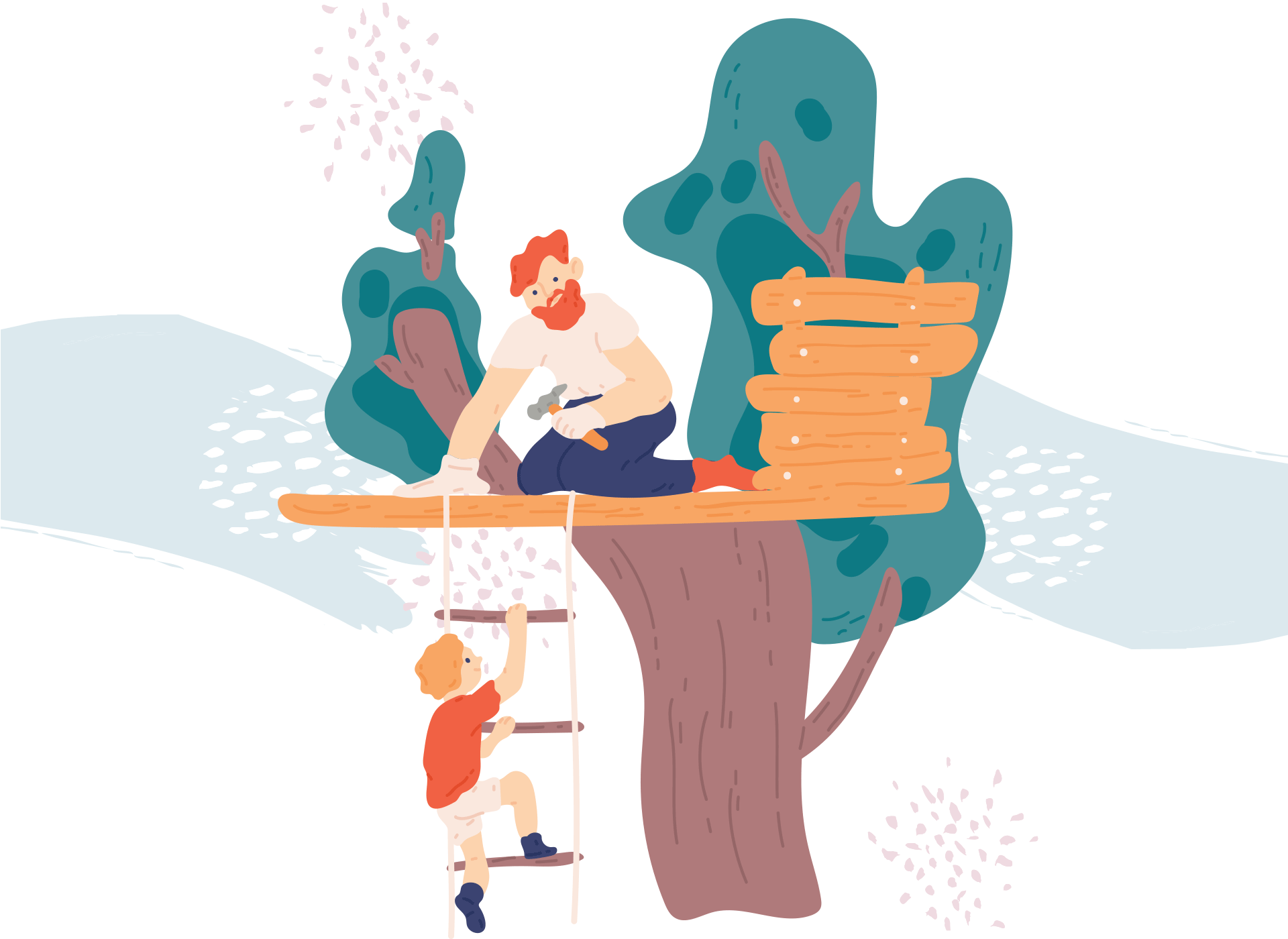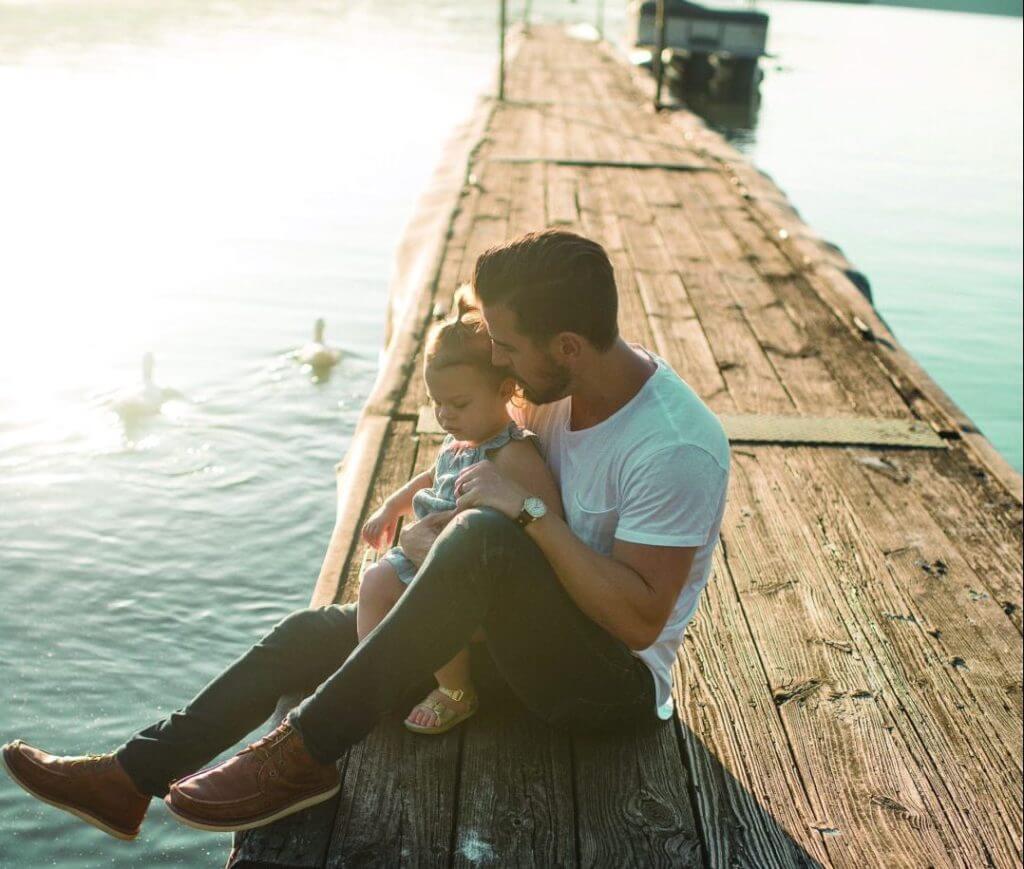
A father’s perspective on modern parenting and how it’s shaping our households.
There’s no shortage of films and advertising skits based around the idea that dads are sloppy parents at best, or neglectful at worst. When mum is away, the situation at home rapidly disintegrates into anarchy. It has comedic value because, once, it might have been largely true. For a modern dad, however, the notion feels dated – although it does explain some of the undeserved plaudits that we receive. Should we go easy on these comparisons and take the role of a dad more seriously? If gender equality is a virtue – and most would say that it is – then the acceptance of fatherhood, and all its associations and responsibilities, needs to be as commonplace as mothers in the workforce. There’s still a way to go on both of those fronts.
Parental gender roles have traditionally been quite definite. Dads earned money and mums cared for kids. I’m making some generalisations, of course. There will always be exceptions, such as my own dad who, in the 1990s, stayed at home (from where he worked and shared parental duties) while my mum left the house to work. But in 2019 the landscape is a bit different. It’s not so clear-cut, and we know that; but the expectations placed on modern parents (who might also be single parents or same-sex parents) are taking a while to catch up. A first-time visitor to our house made a remark, thinly disguising her astonishment, about how nice it was that I was hanging the washing out to dry. Somebody once expressed mild disbelief that I routinely do grocery shopping. Yes, it was another dad. Yes, the reinforcing of stereotypes can come from either gender. And yes, I realise the irony of mentioning these things here – the laundry, the grocery shopping – while also trying to downplay my involvement.
There are stories of mothers being called ‘spoiled’ because they don’t do 100% of the cooking, or cleaning, or lunch-making, or whatever. The label ‘hands-on dad’ gets attached to just about any father who does anything remotely sensible. It’s quite easy to be a ‘good dad’ if these are the yardsticks. It would be great to update our collective preconceptions. Let’s not assume that things will go awry when dad is in charge; let’s instead assume that everything will be okay. An unsuccessful dad day ought to be a bigger surprise than a successful one, so let’s change our benchmarks. Broadly speaking, dads are quite capable; so, our default assumption should be that they will get the job done. Put simply, let’s not belittle the role that dads play. We don’t babysit; that’s what you do with other people’s children. We’re simply parenting, making up a full 50% of an equal partnership. A babysitter can’t be expected to know the nuances of a child’s behaviour or requirements, like the preferred sandwich cut, or favourite book-reading sequence, or telltale squirm when they have a full bladder. A babysitter can sign off for good at a specified time, a luxury not afforded to either parent. Maybe people use the word ‘babysitter’ innocently, not meaning to compare a dad with a casual minder. I can understand that. Its use does, however, allude to the low societal expectations placed on dads.

Parenting duties that are equally shared don’t always arise naturally, so perhaps an honest discussion between partners is needed if there’s a true imbalance in your relationship. Nobody’s claiming that all the dads of the world, or all the mums, routinely pull their weight; but it’s simply not fair to regularly shirk your fair share. That said, most dads literally have fewer hours to spend with their kids: Data from the most recent Australian census suggests that, of two-parent families, around 5% comprise stay-at-home dads. There’s a lot of diversity within this 5%: Some are employed from home, some aren’t, some are studying, some aren’t. Regardless, 5% is not much, and it’s remained pretty much unchanged over the last two decades. A big difference in the world of today is that the reasonably firm line between ‘breadwinner’ and ‘caregiver’ has very much softened.
Differing standards often play a small part in perception. For example, my partner likes to dress our boys in clothes that ostensibly match in any or all of colour, style, fabric, and superhero character. I don’t have that concern. I freely admit that they tend to look daggier when dressed by me; however, in terms of warmth, suitability, cleanliness, and ease of clothing selection, all the boxes are ticked. I can understand the intended humour if someone mentions it, but it’s also a not-so-subtle comment that my fashion sense is sadly lacking. From a strictly functional standpoint, both of us have succeeded; and I’ve certainly deliberated less. I do concede that when the boys are a bit older, I will have to adapt my tactics so that they’re spared acute embarrassment.
If you are a dad who looks after your kids while counting down the minutes until your partner gets home, it’s worth considering a change in mindset. It shouldn’t be a chore, or a task done so that you can have an equivalent amount of time off in lieu. Sometimes dads do drop the ball and slack off. Maybe the low bar has something to do with that. We’re not perfect, far from it. But it would be nice to hear statements that don’t come across as demeaning or judgmental. It’s nice to be appreciated for what we do – most people will readily accept recognition – but it shouldn’t be thought of as exceptional. We’re not seeking a figurative trophy, just an equal footing. Let’s all try to make that happen.























